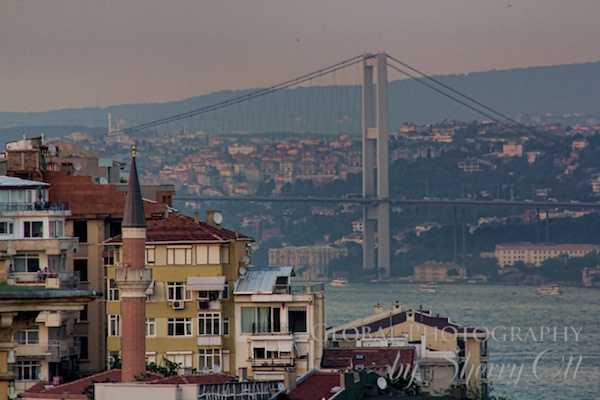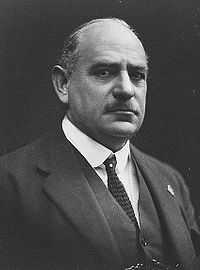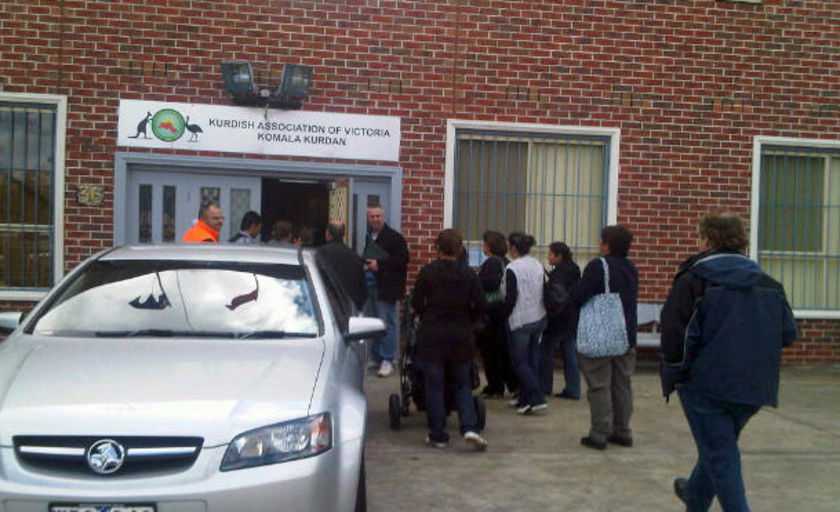Eric Ellis
Turkey, with its strong economy and links to Asia, may not need to be part of the European Union.
http://www.smh.com.au/business/turks-might-not-wait-20101110-17nto.html, November 11, 2010

http://www.smh.com.au/business/turks-might-not-wait-20101110-17nto.html, November 11, 2010

 Two young Gallipoli descendants are among the first Victorians in decades to touch the helmet that once protected our greatest military mind.
Two young Gallipoli descendants are among the first Victorians in decades to touch the helmet that once protected our greatest military mind.
Mitchell Hutchinson, 15, and Ekrem Eren, 16, ( son of John H. Eren MLA ) were invited to the Shrine of Remembrance, where Sir John Monash’s tin hat will go on public display for the first time before Anzac Day. They held in their hands, just as the great commander Monash held in his hands the lives of their great-grandfathers–and many others–from 1915 to 1918. Ninety years ago the fore fathers of the two Aussie teens were enemies on the Turkish battle field where Monash was a colonel under that helmet.
Mitchell’s great-grandfather, William Paul McKenzie, was a Digger in Monash’s 14th Battalion, while Ekrem’s great-grandfather, Hamdi Isteni, was a Turkish officer. (under the command of Mustafa Kemal Ataturk..)

 Martin Flanagan
Martin FlanaganLEGENDS are like earthquakes. They happen. Afterwards, we try to understand the forces that created them. Anzac is an Australian legend that has a roughly analogous place to the Civil War in the American psyche. Both are stories of young nations encountering the horrors of modern warfare for the first time – that is, wars fought with repeating rifles and machineguns and appalling casualty rates. Both conflicts represent massive and unprecedented change.
, April 24, 2010

SECURITY experts are alarmed that a company with links to the Chinese military is bidding to supply equipment to the national broadband network, warning that the equipment could be used to spy or launch cyber attacks on Australian governments and businesses.
http://www.theage.com.au/technology/technology-news/spy-fears-as-chinese-firm-eyes-nbn-deal-20101016-16odq.html, October 17, 2010

 Melbourne, 07.09.2010
Melbourne, 07.09.2010
The new Deputy Minister of Foreign Affairs, Dimitris Dollis, stated to “Neos Kosmos” that the decision of the Prime Minister, George Papandreou, to include him in the new cabinet is a “great honor and a great challenge”.
He said that his appointment as one of the two Deputy Prime Ministers is an “honor for the Greeks of Australia but also for the Greek Diaspora in general”.
Mr. Dollis made a commitment that he will do “the best possible for the Greek Diaspora”, from his current position as well, within the framework of the government’s policy.
Dimitris Dollis was born in Kastoria. He developed his political activities in the state of Victoria, in Australia, where his family emigrated when he was 15 years old. Within the 29 years he spent in Australia, he served as City Councilor, Member of the Parliament*, Shadow Minister and Deputy Leader of the Labor Party. When he returned to Greece, he was appointed as the General Secretary for Greeks Abroad of the Greek Government.
He made a close connection with George Papandreou and supported him during his course. As the Prime Minister of Greece, George Papandreou appointed him as Ambassador-at-Large and Special Envoy of the PM for the release of the Greek teacher Thanassis Lerounis, who had been abducted by the Taliban.
Source: ANA–MPA

 Anti-terrorism raids on homes across Melbourne this morning were part of a national effort, with properties in Sydney and Perth also targeted.
Anti-terrorism raids on homes across Melbourne this morning were part of a national effort, with properties in Sydney and Perth also targeted.
In a joint blitz, police executed a number of search warrants as part of their investigation into organisations funding overseas terrorists.
The counter-terrorism teams include the Australian Federal Police, and officers from New South Wales, Victoria and Western Australia.
The raids are part of an investigation into the funding of terrorist organisations.
“The community can be assured that this investigation is not related to any terrorist-related threat or incident,” a police spokeswoman said.
The Melbourne raids took place in Glenroy, Coolaroo, Pascoe Vale, and Dandenong.
Police raided the offices of the Kurdish Association of Victoria on Fawkner Road, Pascoe Vale, before dawn.
They sealed off the area and entered the offices.
Police seized boxes full of documents in the raids.
They also took desktop computers, hard drives and bagged evidence to waiting police cars.
Local Kurds, however, said the raids were nothing more than a political stunt.
Sniffer dogs combed the scene and association members were barred from entering the property.
Up to seven police cars were at the scene at first light.
The raids are believed to be linked to Kurdish groups providing funding to terror organisations overseas.
The Kurdish Association of Victoria was established to help newly arrived Kurdish refugees and migrants.
Its website says it provides a range of services for the Kurdish community, including settlement, advocacy, referral, education and health issues.
It also offers cultural and recreational programs in the areas of folk dancing, traditional music and Kurdish language.
The raids are believed to be linked to a crackdown on funding for the Kurdish Workers’ Party, which is listed as a terror organisation internationally. The PKK’s goal is to establish an independent Kurdish state.
with Reid Sexton
, 19 August 2010
